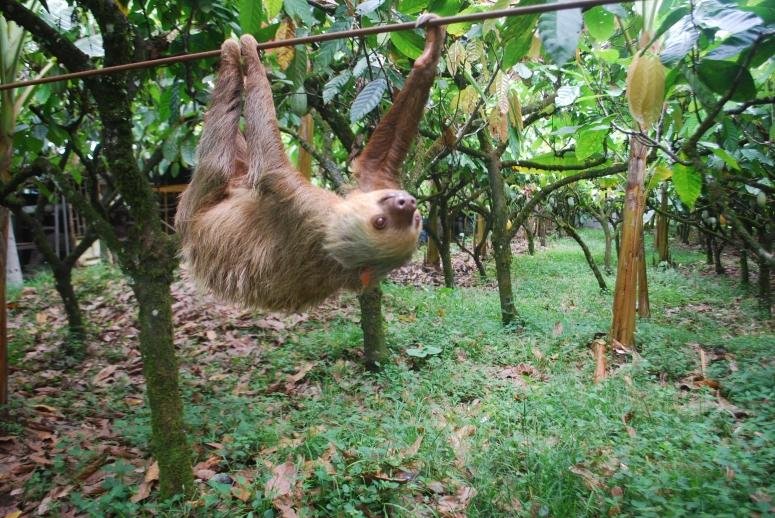1 of 2 | Researchers say the sloth's sluggishness is the unavoidable result of adapting to a life in the trees and a leaf-only diet. Photo by Zach Peery/University of Wisconsin
MADISON, Wis., July 20 (UPI) -- Sloths are one of only a few mammal types to carve out an exclusively arboreal niche. And new research suggests it's the sloth's tree-based lifestyle that explains its sluggish disposition.
"Among vertebrates, this is the rarest of lifestyles," Jonathan Pauli, a professor of forest and wildlife ecology at the University of Wisconsin, explained in a news release. "When you picture animals that live off plant leaves, they are almost all big -- things like moose, elk and deer. What's super interesting about arboreal folivores is that they can't be big."
Recently, Puali and a trio of Wisconsin researchers, M. Zachariah Peery, Emily Fountain and William Karasov, ventured into the rainforests of northeastern Costa Rica to measure the energy expenditures of wild two- and three-toed sloths.
Their aim wasn't to explain the slowness of the sloth, specifically, but to explain the scarcity of arboreal folivores in the animal kingdom. Trees are everywhere, after all.
Their findings confirm what previous studies have found -- that sloths have no choice but to slow way down. Leaves are a poor source of energy. Yet, sloths eat them exclusively. For most species, it isn't worth it to spend evolutionary capital on such a crummy food source.
"The food sucks," Pauli explained. "It's only plant leaves. You have to exploit a very constrained niche."
The paucity of calories in a tree-leaf-only diet demands extreme sluggishness. Researchers found that the three-toed sloth burns just 110 calories each day. It can't afford to use any more.
When compared with the results of similar studies, the new findings -- published this week in the journal The American Naturalist -- show that the most specialized tree-living, leaf-eating species expend the least energy.
In other words, the more specialized the arboreal folivore, the slower the arboreal folivore.
The findings reinforce the stark reality of a tree-based lifestyle -- it's really hard.
"The findings reinforce the concept that arboreal folivores are tightly constrained by nutritional energetics," Pauli concluded. "It takes a suite of extraordinary adaptations to survive in forest canopies, and this may help explain the lack of species diversification among arboreal folivores."















